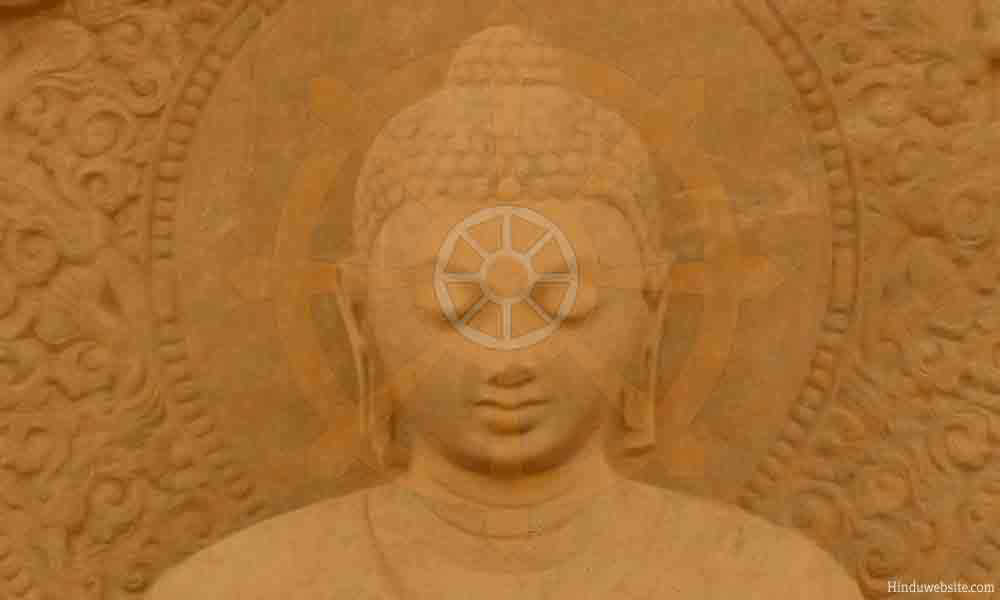
The Eightfold path - Epilogue

|| The Way to the End of Suffering || Right View || Right Intention || Right Speech || Right Action || Right Livelihood || Right Effort || Right Mindfulness || Right Concentration || The Development of Wisdom || Epilogue || Appendix || Recommended Readings
Epilogue
This completes our survey of the Noble Eightfold Path, the way to deliverance from suffering taught by the Buddha. The higher reaches of the path may seem remote from us in our present position, the demands of practice may appear difficult to fulfill. But even if the heights of realization are now distant, all that we need to reach them lies just beneath our feet. The eight factors of the path are always accessible to us; they are mental components which can be established in the mind simply through determination and effort. We have to begin by straightening out our views and clarifying our intentions.
Then we have to purify our conduct — our speech, action, and livelihood. Taking these measures as our foundation, we have to apply ourselves with energy and mindfulness to the cultivation of concentration and insight. The rest is a matter of gradual practice and gradual progress, without expecting quick results. For some progress may be rapid, for others it may be slow, but the rate at which progress occurs should not cause elation or discouragement. Liberation is the inevitable fruit of the path and is bound to blossom forth when there is steady and persistent practice. The only requirements for reaching the final goal are two: to start and to continue. If these requirements are met there is no doubt the goal will be attained. This is the Dhamma, the undeviating law.
Suggestions for Further Reading
- Buddhism - The Concept of Anatta or No Self
- Anatta or Anatma in Buddhism
- Anicca or Anitya in Buddhism
- The Buddha on God
- The Buddha on Avijja or Ignorance and on the Origin of Life
- The Buddha On the Self And Anatta, the Not-Self
- History Of The Four Buddhist Councils
- Chinese Buddhism
- The Eightfold Path Of Buddhism
- The Four Noble Truths of Buddhism
- Four Stages of Progress on the Middle Way in Buddhism
- The Practice of Friendliness, Kalyanamittata, in Buddhism
- Karma or Kamma In Buddhism
- Mahayana Buddhism
- Buddha's Last Days and Final Words
- Buddhism - The Middle Way
- The Buddha's Teaching on Right Mindfulness
- The Meaning and Practice of Mindfulness
- Buddhism - Vinaya or Monastic Discipline
- Right Conduct For Lay Buddhists
- Nirvana or Nibbana in Buddhism
- Buddhism - Objects of Meditation and Subjects for Meditation
- Buddhism - Right Speech and Mind Training
- Buddhism - Right Living On The Eightfold Path
- Handbook for the Relief of Suffering by Ajaan Lee
- Theravada Buddhism
- Meat Eating or Vegetarianism in Buddhism
- Essays On Dharma
- Esoteric Mystic Hinduism
- Introduction to Hinduism
- Hindu Way of Life
- Essays On Karma
- Hindu Rites and Rituals
- The Origin of The Sanskrit Language
- Symbolism in Hinduism
- Essays on The Upanishads
- Concepts of Hinduism
- Essays on Atman
- Hindu Festivals
- Spiritual Practice
- Right Living
- Yoga of Sorrow
- Happiness
- Mental Health
- Concepts of Buddhism
- General Essays
Source: The Wheel Publication No. 308/311 (Kandy: Buddhist Publication Society, 1984), second edition (revised) 1994. Transcribed from a file provided by the BPS Copyright © 1998 Buddhist Publication Society. Reproduced and reformatted from Access to Insight edition © 1999 For free distribution. This work may be republished, reformatted, reprinted, and redistributed in any medium. It is the author's wish, however, that any such republication and redistribution be made available to the public on a free and unrestricted basis and that translations and other derivative works be clearly marked as such. All Wheel publications and Bodhi Leaves referred to above are published by the Buddhist Publication Society.